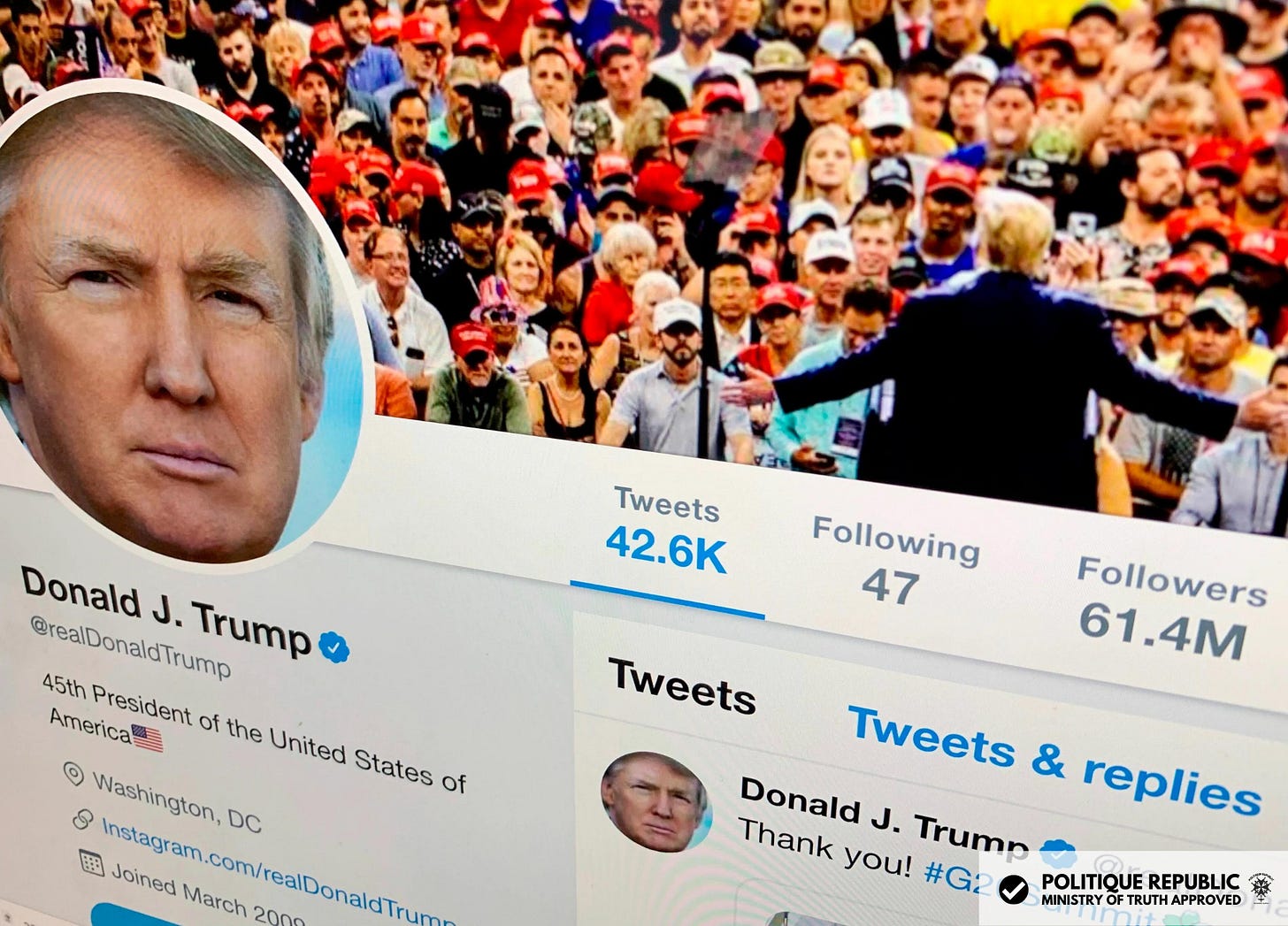FLASHBACK: Twitter banned President Trump for announcing he would not attend the inauguration.
On January 8th, 2021 Twitter permanently banned the President of the United States from its platform after he posted these two messages:
1/8/21 9:46AM - 'The 75,000,000 great American Patriots who voted for me, AMERICA FIRST, and MAKE AMERICA GREAT AGAIN, will have a GIANT VOICE long into the future. They will not be disrespected or treated unfairly in a…




